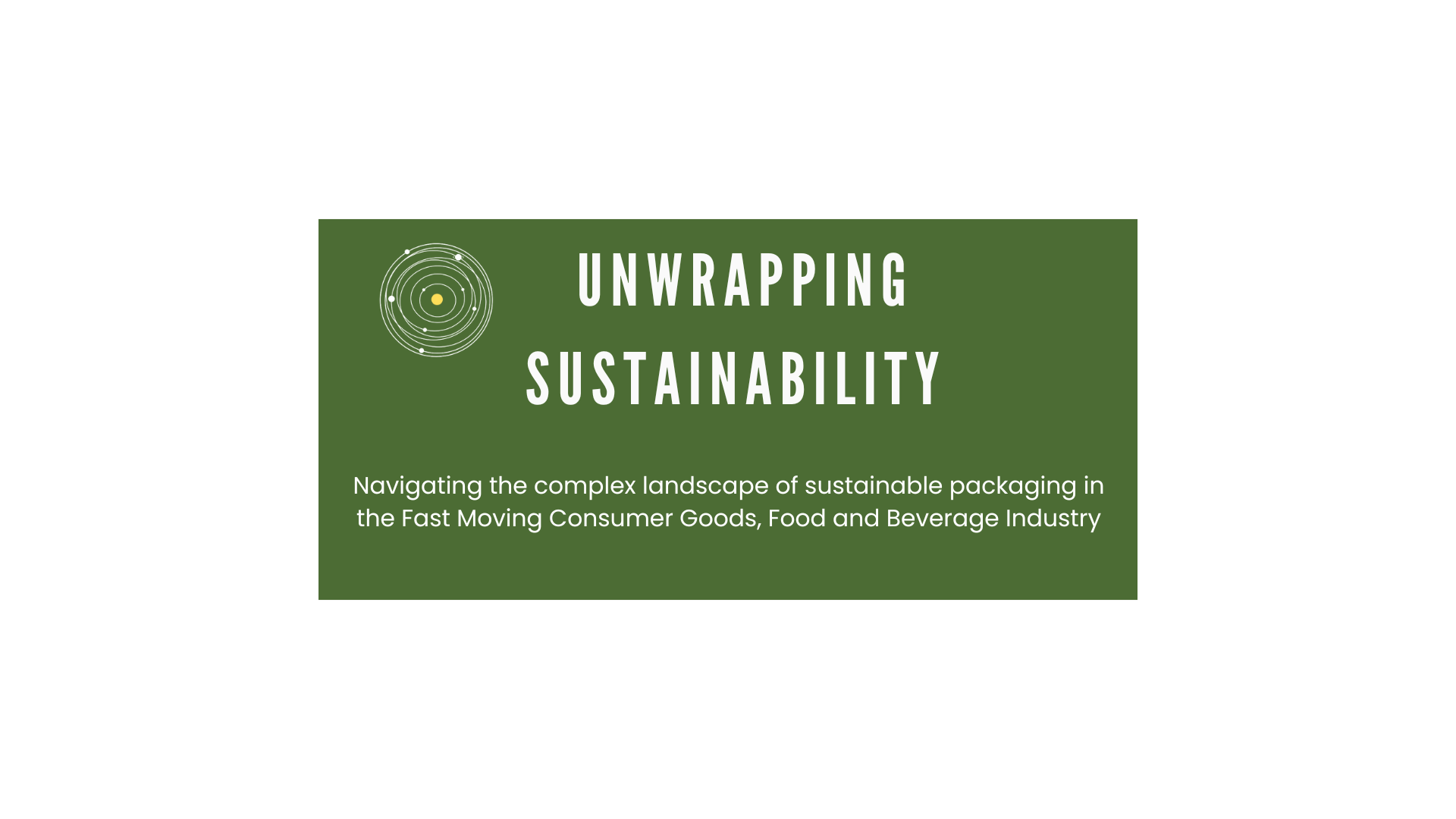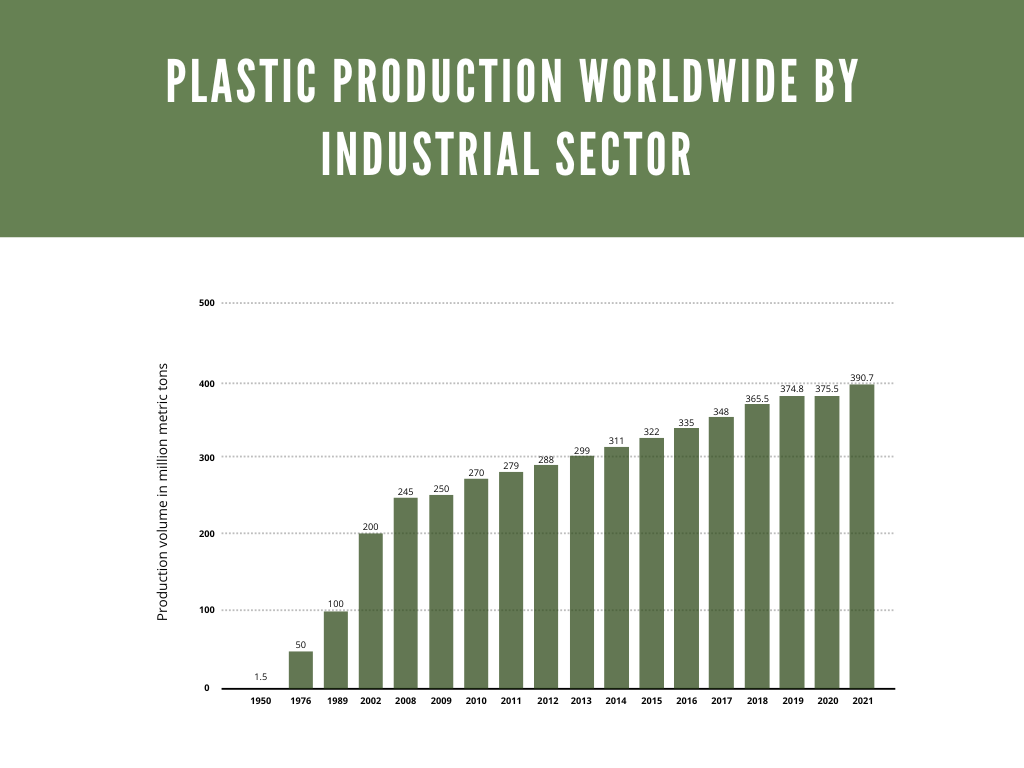Master of Fine Arts in Design Management | Thesis Project 2024
As environmental concerns and consumer awareness grow, sustainable packaging is no longer optional—it’s expected. Yet, for companies in the Fast-Moving Consumer Goods (FMCG) sector, especially in food and beverage, the shift from traditional to sustainable packaging remains complex and fragmented.
My thesis, Unwrapping Sustainability, explores how design management can help organizations navigate this complexity. The project investigates regulatory inconsistencies, the disconnect between consumer intent and behavior, and the internal challenges companies face in scaling sustainable solutions.
Through industry interviews, systems mapping, and strategy development, I designed a decision-support system that helps FMCG companies integrate sustainability into packaging design without compromising cost, compliance, or functionality. The goal was not just to propose greener alternatives—but to empower organizations with a practical, scalable framework for long-term impact.
Problem & opportunity
The Problem -The FMCG (Fast-Moving Consumer Goods) sector—particularly in the food and beverage industry—is one of the largest contributors to plastic pollution globally. Packaging waste accounts for nearly 50% of all plastic waste, with much of it designed for single-use. While the environmental urgency is clear, the path to sustainable packaging remains obstructed by multiple, overlapping barriers :
The Opportunity - These interrelated challenges present a powerful opportunity for systemic change. Companies that can successfully navigate sustainability, compliance, consumer expectations, and cost will not only future-proof their operations but also gain competitive advantage.
This project proposes a decision-support system—a practical, scalable tool designed to:
-Integrate sustainability into packaging strategy from concept to execution
-Enable cross-functional collaboration and lifecycle thinking
-Track regulatory changes and align with circular economy goals
-Assess both environmental impact and financial value
By addressing the root causes of stagnation in sustainable packaging adoption, this thesis provides a strategic roadmap for transformation—bridging the gap between intention and implementation in the FMCG sector.
Introducing Ecowrapped: A Strategic Decision-Support System
A Strategic Decision-Support System for Sustainable Packaging
Developed as the final concept of my MFA thesis, Ecowrapped is an modular platform designed to help FMCG food and beverage companies transition to sustainable packaging in a scalable, compliant, and
data-driven way.
This platform combines advanced technology, data analytics, and user-centric design to provide a holistic solution for managing, innovating, and optimizing sustainable packaging processes. It integrates design management, circular economy principles, and regulatory insights to support cross-functional teams in making informed, impactful packaging decisions.
More than a tool — Ecowrapped is a mindset shift: turning packaging into a strategic lever for sustainability and business innovation.
How does Ecowrapped work ?
Ecowrapped is structured around seven core modules, each addressing a specific barrier identified through primary research and systems analysis.
At the core of EcoWrapped lies a robust digital architecture designed for adaptability, integration, and intelligence. Each component plays a critical role in streamlining sustainability decision-making—from a centralized data lake that unifies all modules in real time, to predictive AI tools that anticipate regulatory and consumer trends. Seamless integration with external systems, customizable dashboards for different user roles, and responsive design ensure that the platform not only fits into existing operations but actively enhances them. Together, these six pillars provide the technological backbone for scalable, data-driven sustainability transformation.
Business Value of design
Ecowrapped, as an Integrated Sustainable Packaging Decision Support System, offers significant business value by integrating design principles, systems thinking and sustainability concepts into business strategies and objectives. This integration enhances user experiences for both customers and employees while driving improved financial performance and competitive advantage.
Financial Value
EcoWrapped creates financial value for FMCG companies in the food and beverage industry through several key mechanisms:
Looking Ahead
EcoWrapped is more than a conceptual toolkit—it is a vision for how FMCG companies can align sustainability goals with business strategy in a practical, scalable, and data-driven way. Grounded in regulatory compliance, circular design, and consumer insight, this framework offers a systems-level approach to accelerating the transition toward sustainable packaging.
As regulations tighten, consumer expectations evolve, and environmental pressures increase, the need for actionable tools becomes critical. EcoWrapped addresses this gap—empowering teams across disciplines to collaborate, simulate outcomes, and make informed decisions that balance ecological impact with economic viability.
This project reflects not just a thesis, but a call to rethink packaging systems—toward transparency, innovation, and circularity. I invite industry partners, sustainability leaders, and design thinkers to explore, adapt, and build on this foundation.
To dive deeper into the research, system architecture, and strategic insights behind EcoWrapped, you can access the full thesis by
clicking below.














